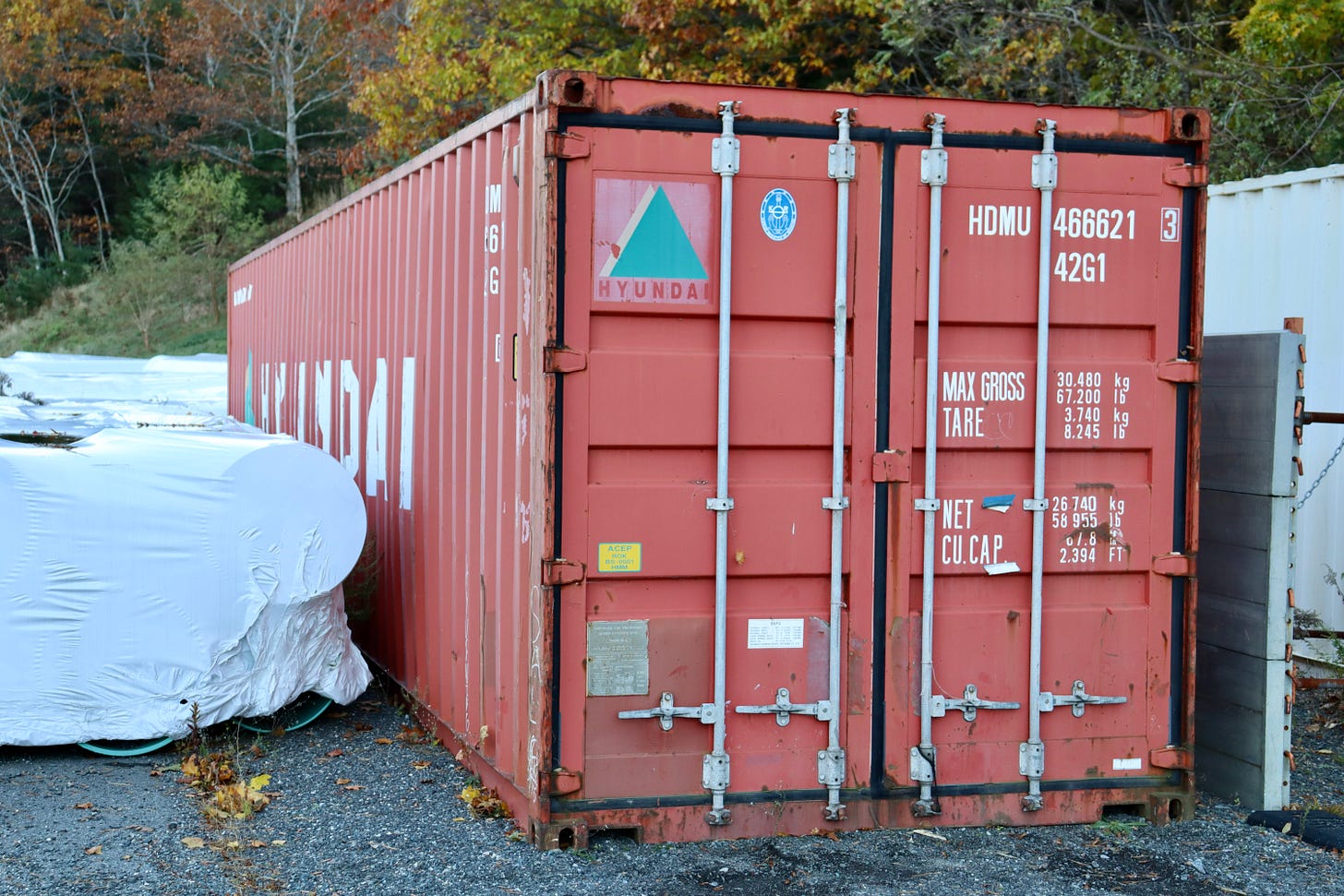Meters or Kiosks: Task Force Weighs Benefits of Spending More Money
Removal of power poles would remove parking spaces
BAR HARBOR––The town paid off its parking meter bond on October 15 and is now looking to remove all of the meters and replace them with kiosk pay stations. The parking meter bond was originally sold April 4, 2019, for $600,000.00 and had been approved at the previous town meeting on June 12, 2018. The possible switch to kiosks was discussed at the Parking Solutions Task Force meeting, which was held November 6, in the Council Chambers at the municipal building on Cottage Street.
According to Special Services Lt. Chris Wharff, the reasons for this are multifold.
Wharff said, “We spend a lot of time on maintenance, set up and take down, repairs due to people hitting them, coin collection, and the devices (single-space meters) are not designed to be removed and handled at the level they are right now. Multi-space meters are far more reliable and repairable. Most all of the parts are replaceable and repairable by our own staff, and they function well with very little maintenance.”
All of the single space meters would be replaced by kiosks with each kiosk handling roughly ten parking spaces. There are currently approximately 320 single-space meters on Main Street, West Street, Cottage Street, Mount Desert Street, and Firefly Lane. These would be replaced with 32 kiosks.
Wharff said that the kiosks make enforcement easier as well because they are based on license plate data for ten spots and can be checked for compliance in bulk rather than having to check each individual meter.
The town already utilizes 29 kiosks for all of the parking lots, outer Main Street, outer West Street, and outer Mt. Desert Street which handle in excess of 500 parking spots.
The task force did not have a quorum at the meeting and was limited to discussing the potential changes. Members could not vote to make a recommendation, for or against the change, to the Town Council. Only four task force members were present for the meeting, Heather Sorokin, Eben Salvatore, Erin Cough, and Christine Witham. The task force is made up of 13 members but currently has four vacant seats.
Other meeting attendees were Interim Town Manager Cornell Knight, Wharff, Finance Director Sarah Gilbert, Public Works Director Bethany Leavitt, Interim Police Chief David Kerns, Parking Manager Scott Pinkham, and Steve Snyder who is a representative of the IPS Group that supplies the meters.
Witham asked what happens to the old meters and Knight said that they would be traded in for a value of $18,500.00. Wharff and Snyder both spoke to this low trade-in value and Wharff said that the trend is moving toward kiosks and that towns are moving away from single-space meters and there isn’t much market for them. Snyder followed up by saying that they can barely give them away lately.
The estimated cost of the switch from single-space meters to kiosks is below.
Total for meters and accessories – $222,158.00
Shipping – $23,000.00
Meter trade-in credit – $18,500.00
Total cost – $226,658.00
Sorokin said that she was concerned about people trying to pay at kiosks and blocking the sidewalks while doing so, especially if more than one group was trying to pay at once, and especially if the kiosks were on busy sidewalk areas like Main Street and Cottage Street.
Wharff responded that the hope was that this would not be an issue because each kiosk would only be responsible for ten spots.
Cough expressed concern about people being able to find the kiosks, as opposed to meters which are right at the parking spot.
Wharff said that because the kiosks will only be handling ten spots each, they won’t be very far away from the actual parking spot. There will also be plenty of signage regarding the location of kiosks.
Snyder said that with the increased use of kiosks rather than single-space meters, people are becoming accustomed to looking for and locating the kiosks.
Additional benefits of using the kiosks is that they do not need to be removed and reinstalled seasonally except for a few that create pinch points for the sidewalk plow. Benefiting the user is that no matter where they are parked, they can extend time for the parking spot from any kiosk in town.
According to Gilbert, the gross parking revenue for this year is $3,125,654.00 with $234,427.00 needing to be deducted for fees. The budgeted revenue is $3,149,600.00 so while the revenue is currently a little short, there is still 6 weeks of parking revenue generating time in the spring for this fiscal budget. The new kiosks would be paid for by parking revenue.
NEW TRANSFORMER TO UTILIZE TWO PARKING SPACES

The second and last topic of discussion on the task force’s agenda was the installation of new equipment in the old police department parking lot which sits between the Lompoc Café and the Dog and Pony Tavern. The equipment would include an underground transformer vault, a switch cabinet, and a communications pedestal and would be a move forward in getting the utility lines on Rodick Street underground.
To make room for the equipment, the two parking spaces currently closest to the small island that separates Rodick Street’s sidewalk from the parking lot would be taken away for expansion of the island so that it could encompass the equipment. Leavitt said that these plans are very preliminary so the number of parking spots lost may increase.
Not wanting to lose any parking spaces that are already in short supply, Cough asked about changing the “no parking” time limit for the delivery truck loading zone that is behind the Dog and Pony Tavern. They could change the time for those spots to earlier in the day and then they may be used for public parking so that those spots could be utilized at least a portion of the day.
Cough said that she was thinking about opening the delivery spots to public parking at 11 a.m. and Sorokin suggested that it be 1 p.m. to accommodate afternoon deliveries.
Public Works Director Bethany Leavitt said that all of the utilities on lower Rodick Street will be underground but Versant still has to get agreements with some property owners to use private property that extends beyond the town’s right of way.
For upper Rodick, Leavitt said that this will not allow all of the overhead poles to be removed but that they are having a meeting on November 30 to discuss the direction that the town and the abutting property owners would like to take. On upper Rodick, there is not a lot of space and during the meeting they will discuss the possibility of going completely underground. If the town is in favor of that, they will have to say where to locate the equipment. Going totally underground on Upper Rodick would be at the will of the property owners. The relevant property owners will be notified of the meeting via letters.
PARKING AT THE FERRY TERMINAL
Prior to adjournment, Sorokin asked if public parking was being allowed for free at the ferry terminal lot on Route 3. The answer was yes and Sorokin then asked if there was signage advertising the available parking at the terminal and also along the way on Route 3.
Sorokin said that this was about the only opportunity that the task force has had to actually increase parking availability and she would like to make sure that it is well advertised, especially since the fact that it is free might be a draw for people who otherwise may not be willing to walk.
We’ve updated the below story with election results for each MDI town.








